Given its history of experimental hardware, its infamously vague responses when asked about what games its working on, its failure to produce much-desired sequels to beloved games, and the smashing success of its recent surprise handheld, the Steam Deck, Valve’s moves are tough to predict.
The company doesn’t keep all of its cards so close to its chest, though. We know, for example, that Valve has big ambitions for the future of the Steam Deck (it even made a giant Steam Deck to convey its passion about the mini-PC); it’s highlighted key areas of improvement it hopes to address in future iterations too. Valve has also openly discussed its ambitions to continue developing games. (Wow, you really thought about that one game again, didn’t you? I told you to stop. Just let it go.) Still, the company remains somewhat of an enigma when it comes to figuring out what to expect.
Speculation isn’t our only tool when it comes to predicting what the house that Gordon Freeman built might be up to, though. From recent interviews, info found in driver updates, datamines, and more, there’s enough to start putting some pieces together without becoming a walking Charlie Day meme.
Editor’s note: Just adding ‘An Australian Steam Deck release date would be nice’ and leaving it at that. — David.
Rumour: New VR Gear
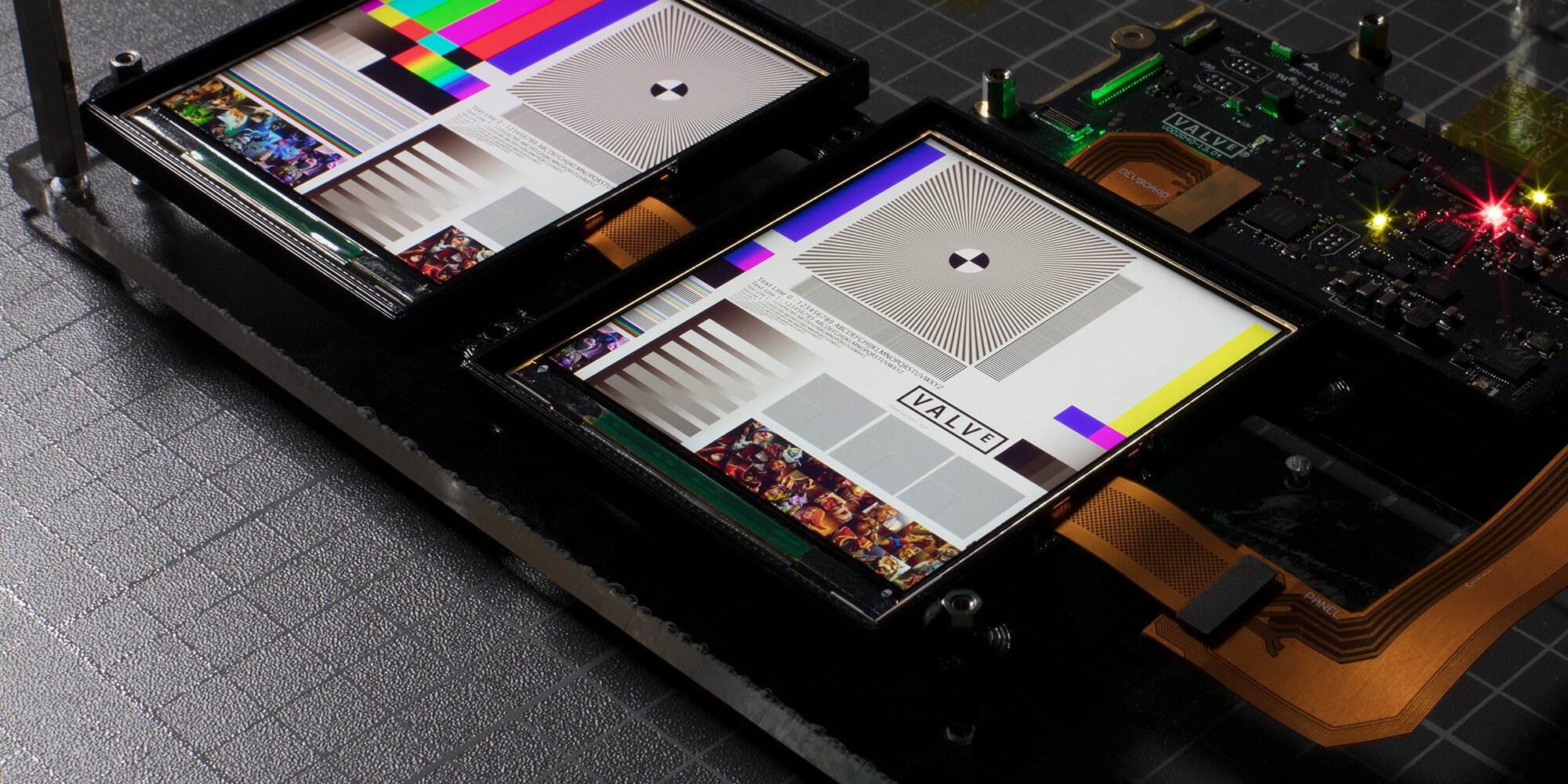
Valve’s Index is a stellar, though pricey, piece of VR gear. While it comes with the burden of needing to set up Base Stations, and that high price, it more than makes up for it with excellent fidelity and high frame rates. It also helps that Valve has developed one of the best VR games currently available: Half-Life: Alyx.
Based on two key pieces of evidence, there’s good reason to suspect that Valve is working on new VR gear. That doesn’t guarantee 2023 will see new toys hit virtual shelves, but it does make this a good year to keep an eye out. Here’s what we know.
Back in 2021, VR YouTuber Brad Lynch came across mention of a new VR codename in a driver file for the Index’s Base Stations (external boxes that provide the headset with motion tracking information). Its name? Deckard (queue up some Vangelis; damn, that soundtrack never gets old). Based on discoveries from Lynch, as well as other sources, Valve may or may not be exploring standalone tracking solutions of the kind we know from headsets like the Quest or the upcoming PS VR2 from Sony. But what is clear is that it’s focusing on future developments in VR.
Read More: The PS5’s New VR Is Impressive, But Is It Worth $US550 ($764)?
Last year, patent filings gave us more fuel for the rumour fire, hinting that the company is interested in protecting designs for standalone VR solutions. We are obligated to inform you that patents are far from predictors of the future, but they’re also not thin entirely air.
Whether or not all of this amounts to an Index hardware refresh, a successor to the headset, or something else entirely, it is clear that Valve is at work on VR solutions and is patenting designs and functions. While there’s no indication that 2023 is necessarily the year we will see the fruits of this labour, there is a path of VR work to follow, and this year will likely either add to that path, or see something cool get revealed, released, or hinted at.
The Steam Deck (and its games) will continue to get better
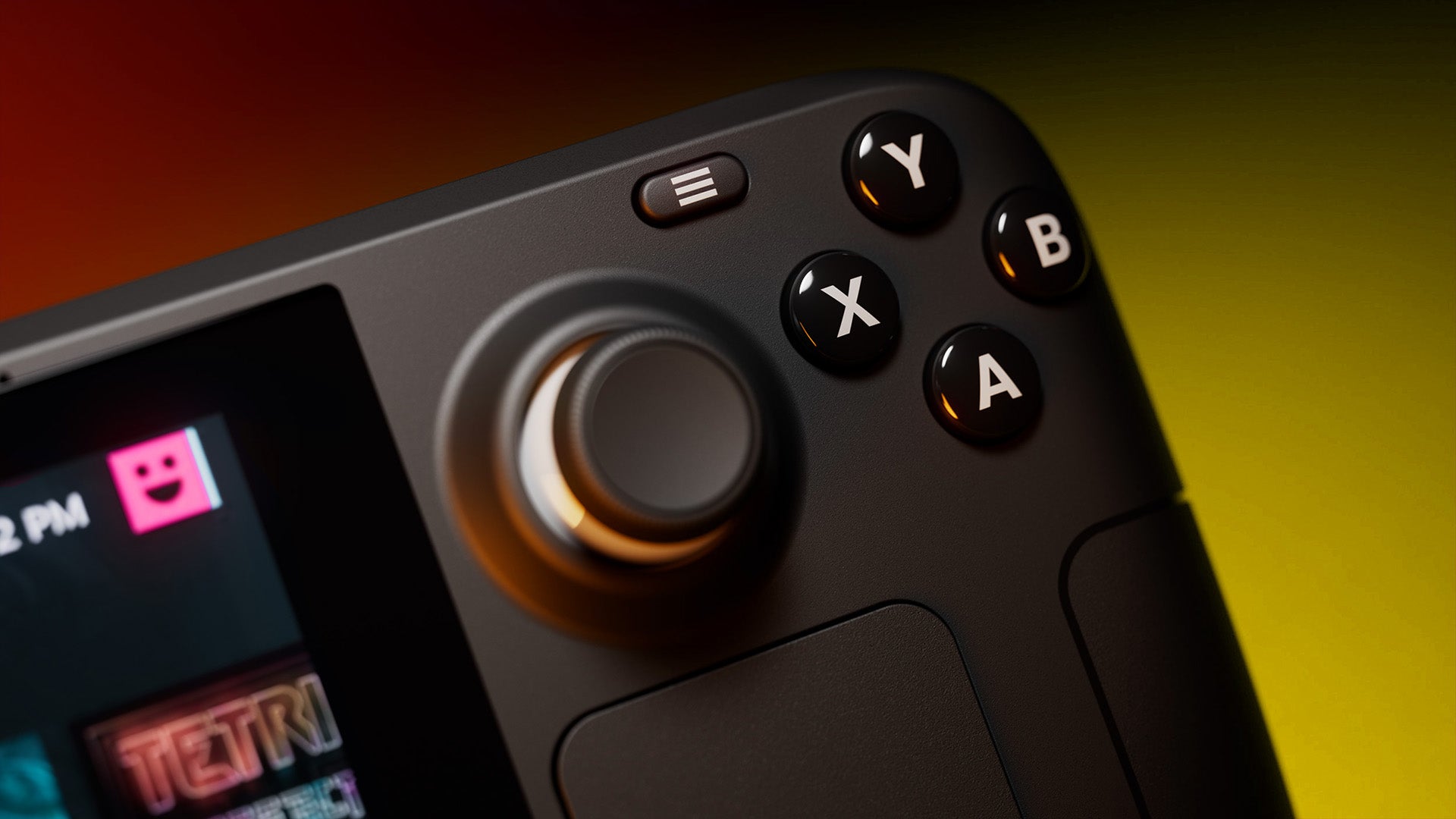
When the Steam Deck first launched, it did so alongside the mega hit that is Elden Ring. While FromSoftware’s latest take on the Souls formula ran on the Steam Deck, it stumbled with some technical issues. Valve was quick to provide some solutions for it via updates to the magical proton compatibility layer the Deck uses to trick your games into thinking they’re running on Windows. But Valve didn’t stop there.
The Witcher 3’s big graphical update was very pretty indeed, but it came with some teething problems on PC and Steam Deck. Like with Elden Ring, Valve issued updates to improve performance for Geralt’s open-world romp on its portable mini-PC. Halo Infinite also received a bit of help last year when Valve turned its attention to mitigating crashes. Most recently, Valve issued a hotfix to improve performance of the recently released Dead Space remake on Steam Deck.
Valve has also made it much easier for games that rely on various anti-cheat solutions in multiplayer to run on Steam Deck as well.
2023 is likely to see more critical support for must-play modern titles on the Steam Deck.
A Team Fortress 2 update (but temper your expectations)
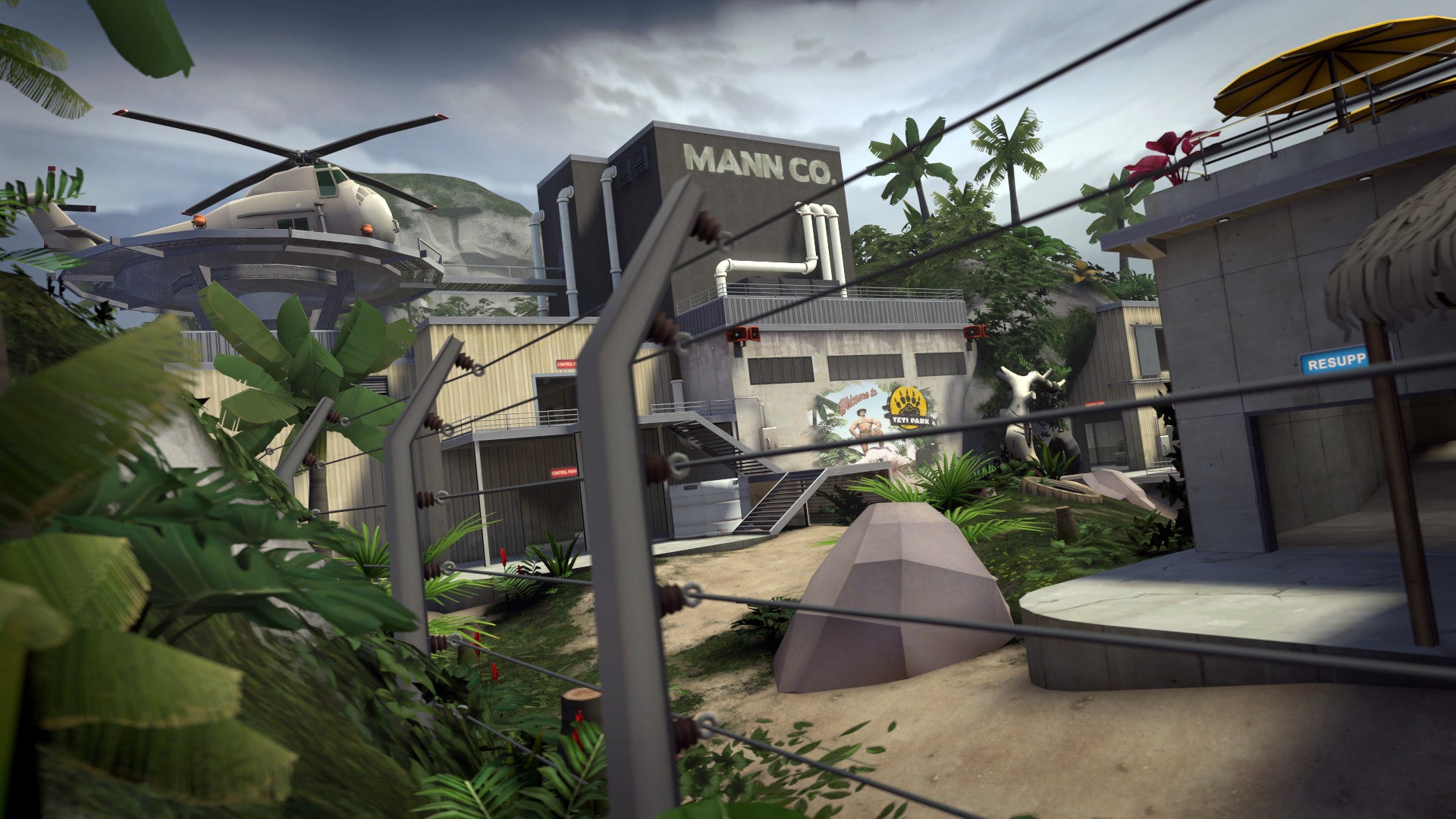
Remember Team Fortress 2? A lot of folks do. That’s why more than a few TF2 fans got excited when word came that Valve was going to issue “a full-on update-sized update — with items, maps, taunts, unusual effects, war paints, and who knows what else?!” for the game. Well, that’s what it said…before trying to temper expectations based on some overly enthusiastic responses.
It’s that “who knows what else” part that might’ve been a little too much, as Valve walked it back a bit, issuing a change to the blog that announced the update. While the blog still says we ought to expect an update, the update has seemingly been downgraded from “update-sized update” to “full-on holiday-sized update.”
The open-ended and admittedly exciting “who knows what else?!” that likely gave someone at Valve a heart attack was swapped with “other community-contributed fixes for the game.” That language helps remind us of the reality that Valve is turning to community and Steam Workshop content to play a central role in this update. But it also genuinely means that, yes, an update for Team Fortress 2 is on the way. It’s just maybe not as big as you thought or hoped it would be.
Possible: A New CSGO Operation
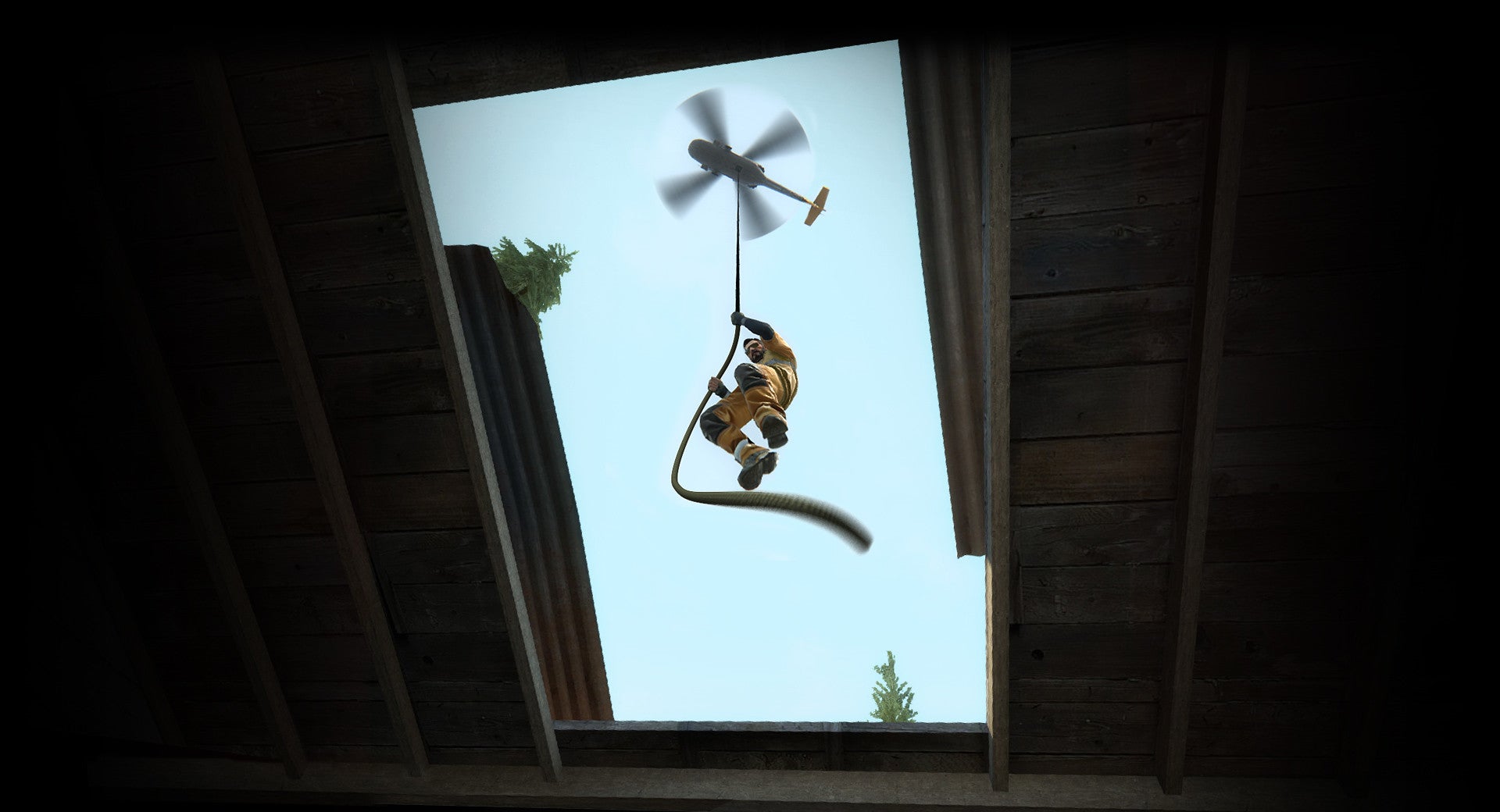
The ever-popular and highly competitive Counter-Strike: Global Offensive is likely to see a new operation this year if previous trends are anything to go by.
Since 2019, CSGO has gotten continual DLC support by way of Operations: chunky updates featuring community-sourced maps, as well as unique cooperative missions, among the usual litany of cosmetics to slap on your digital soldiers.
The most recent operation, Operation Riptide, ran until February 21 of last year. Operations typically land anywhere from six to eight months after the last one. So we’re definitely a little overdue, and it’s not uncommon for operations to skip a year (2018 was a notable absence). But as we’ve had a steady beat of operations since 2019, it’s not unreasonable to expect 2023 to see a new one as well.
Keep an eye on: Future Steam Deck (and Valve) hardware
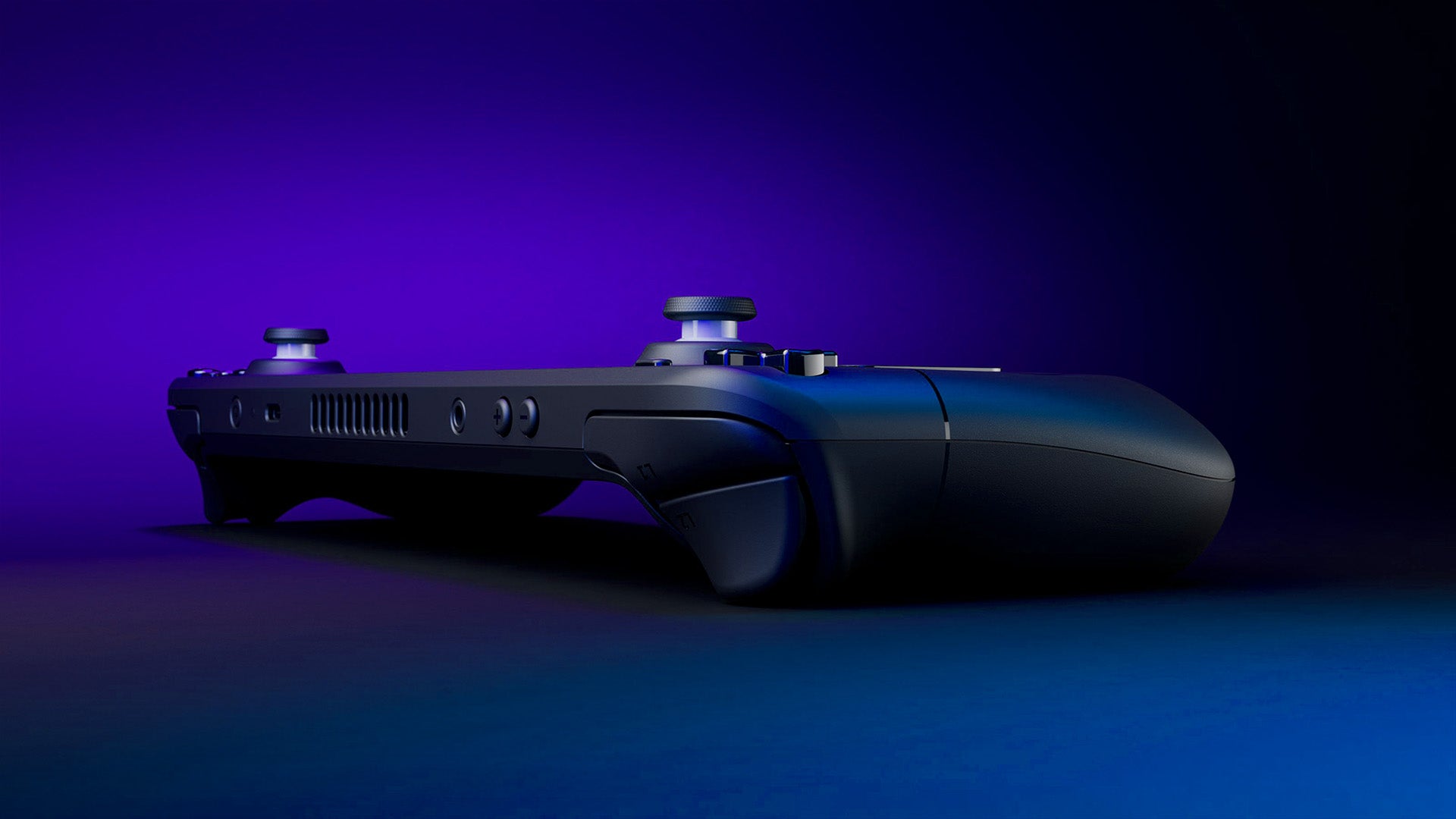
With the Steam Deck, Valve has finally snagged the hit it was likely hoping for when it first ventured into the hardware jungle some seven or so years ago. And the company is far from done producing hardware. While nothing has been confirmed for 2023, this is a good year to keep an eye out as Valve has been hinting at what it’s working on and what it hopes to see in the future.
We know, for example, that the Steam Deck is far from a one-off. As was discovered in promotional literature for the Steam Deck’s arrival in Asian territories, Valve describes the Steam Deck as “the first in a new category of Steam handheld gaming PCs” and that the company will “follow up on this product with […] new versions of the Steam Deck.” We also know what upgrades the company would like to see in future versions.
Any Steam Deck owner likely has a list of specs they’d like to see improved, but if yours contains improved battery life and a better screen (I know mine does), then Valve is on a similar wavelength. Speaking to The Verge, Valve’s Lawrence Yang and Pierre-Loup Griffais disclosed that the screen and battery are key areas of improvement for the manufacturer.
But would such updates come via a direct sequel to the Steam Deck with a number attached to the side like most other consoles? That’s uncertain. Valve does describe the Steam Deck as a “multi-generational product,” perhaps not too unlike traditional consoles which we use similar terminology for. And while it does take some technical skill, the Deck is highly user-reparable and upgradable. Folks have already been upgrading their fans to more silent offerings from iFixit, as well as finding solutions to storage via SSD upgrades and more. It seems like any number of futures are possible for the Steam Deck, but one thing is certain: Valve is committed to it as a brand and a platform.
Oh, and while it’s not a Steam Deck, Valve has expressed a desire for a follow-up to the Steam Controller. According to Valve’s Lawrence Yang, “it’s just a question of how and when.”
Expect: Steam to keep kicking butt
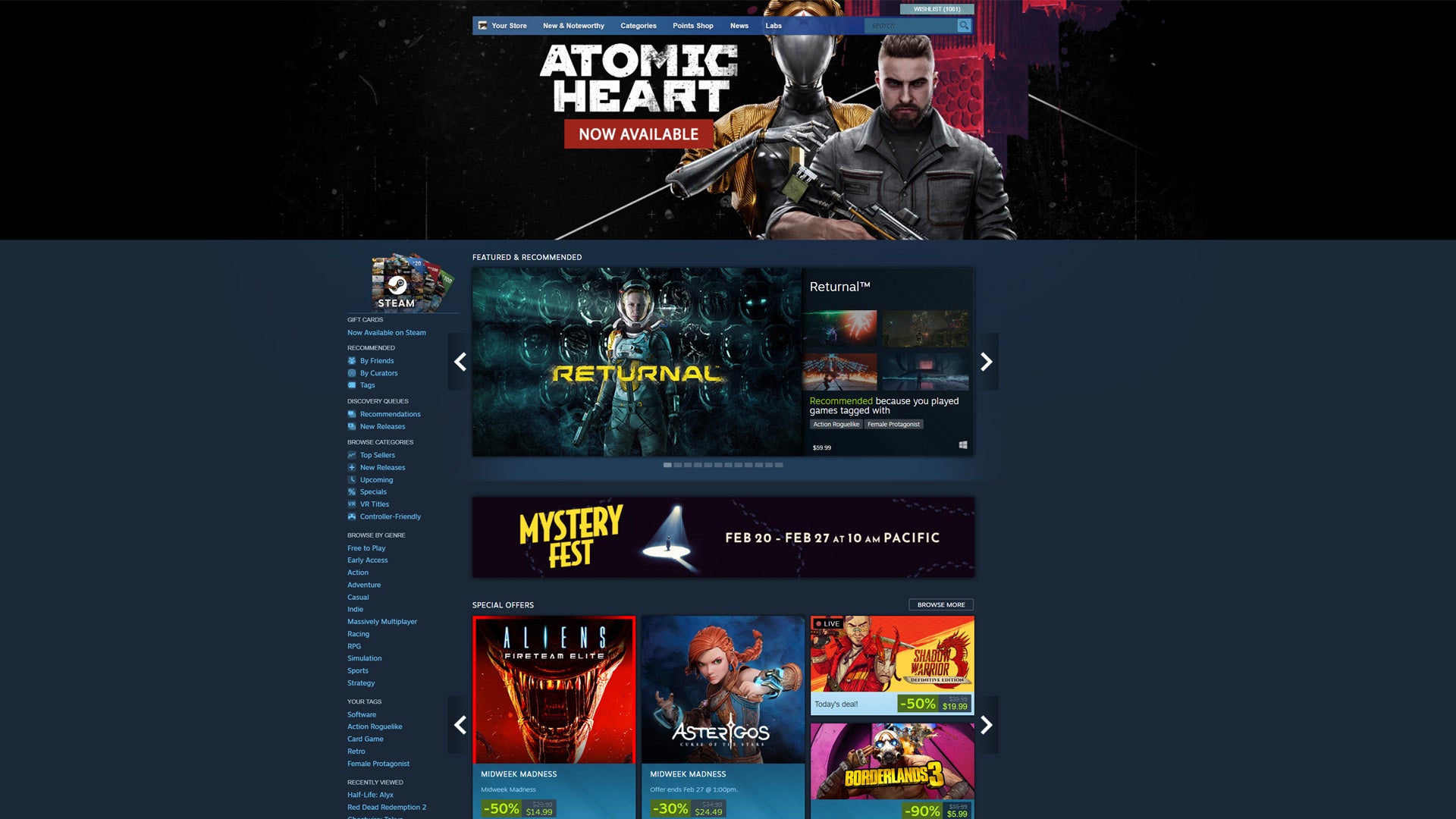
While Steam has been a focus of ongoing scrutiny and concern over how dominant it is (and, much like the storm surrounding mobile app stores, whether its 30 per cent cut of every game sold is fair), what’s also true is that it’s never been more popular.
Despite rival storefronts like the Epic Games Store popping up in recent years, as well as other efforts from publishers to create their own launchers and ways of buying digital games on PC, gamers are still flocking to Valve’s online store and game management platform. Just last year Steam reached a new height for concurrent users: 30 million players. That’s like two Tokyos in terms of population count.
What does that mean for you? It means that Steam will continue to be an excellent place to grab games on PC without needing to download fledgling attempts at online storefronts and launchers. With Steam’s regular seasonal sales, simple refund process, and ease of connecting with friends, it’s not hard to imagine why the service has become such a standard for PC gaming.
2022 in general was a remarkable year for Steam. Based on Valve’s Steam Year In Review for 2022 update, the store saw a remarkable, nigh-unimaginable, count of 83,000 new customers per day. That’s about a packed football stadium-sized amount of people. Every. Day.
And now that games which were once locked to stores like (shudders) Origin or (vomits) the Xbox app are back on Steam, it’s a packed house and all your favourite games are here. 2023 is going to be no exception and we might see the platform set some new records.
CSGO and Dota 2 events

With two of the most popular esports games in the world, Dota 2 and CSGO, under its control, Valve’s no stranger to competitive gaming. Here are some of the next big events to mark on your calendar:
The CS GO Major Championship is in Paris this year, with 24 teams and three stages, all competing for a $US1,250,000 ($1,735,250) prize pool. The event kicks off on May 8 this year, running until the 21 of that month.
The world of pro Dota received a few changes that’ll go into effect this year. With tour lengths getting cut in half, and changes to DPC hosts, things ought to be a bit different. The Winter Tour is currently underway with just a few more days left. From there, the first South American DPC event will kick off on February 22 with the Lima Major 2023.
What about: More Valve games?
It’s true: Valve can make a video game. And when they do, the results are usually something special. Are we likely to see something new this year? When it comes to Valve, you’re always safer assuming the answer is no. But let’s review what the company has said publicly about its developer ambitions.
Speaking with Famitsu, “Valve crusader” Greg Coomer said, via translation, that the company has “a lot of games in development” and “will continue to release games.” He continued:
“Game development is very important to Valve. I don’t know the exact numbers, but the percentage of employees involved in game development is high. A lot of people are involved.”
Yes, that kinda sounds like your buddy’s band’s Facebook post that just says “big things coming!” But unlike your friend’s little music project (they haven’t even written a song yet, let’s be real), it is reasonable to suspect that Valve must have something, right? Virtual reality was a big inspiration for the company, one that at least has them talking about the H word. As Coomer told Famitsu, “Half-Life: Alyx was a really fun game to make […] it’s still fun to go back [to that world] and tell more stories” and the company reportedly desires to “continue exploring the Half-Life universe.” (See? You’re thinking about it again. C’mon. It’s time to move on.) Surely, I can hear you saying, this must mean something??
Valve did release Aperture Desk Job (which was little more than a tech demo for the Steam Deck) in 2022. And as folks are wont to do, it got datamined aaaaaand that of course lead to reckless speculation. Said datamine can be read here in a Google doc. (72 pages, huh? Challenge accepted.) In it are extremely thin details about four possible games. One is a Source 2 (Valve’s home engine) port of CSGO. Another seems to be connected to a canned entry in the Portal series. Another is called “Citadel” and seems to be an “RTS/FPS hybrid” with some team, class, and squad structure. And, finally, dare I even write this, another looks like a possible “follow-up to Half-Life: Alyx,” as described by journalist Tyler McKvicker. Read into such things at your own peril and likely disappointment.
So, yes, Valve definitely seems to be spending resources and energy on game development. And that’s about all anyone, but Valve, can say on the matter.
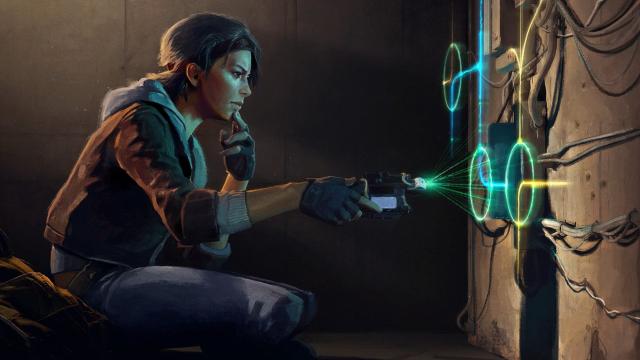
Leave a Reply